
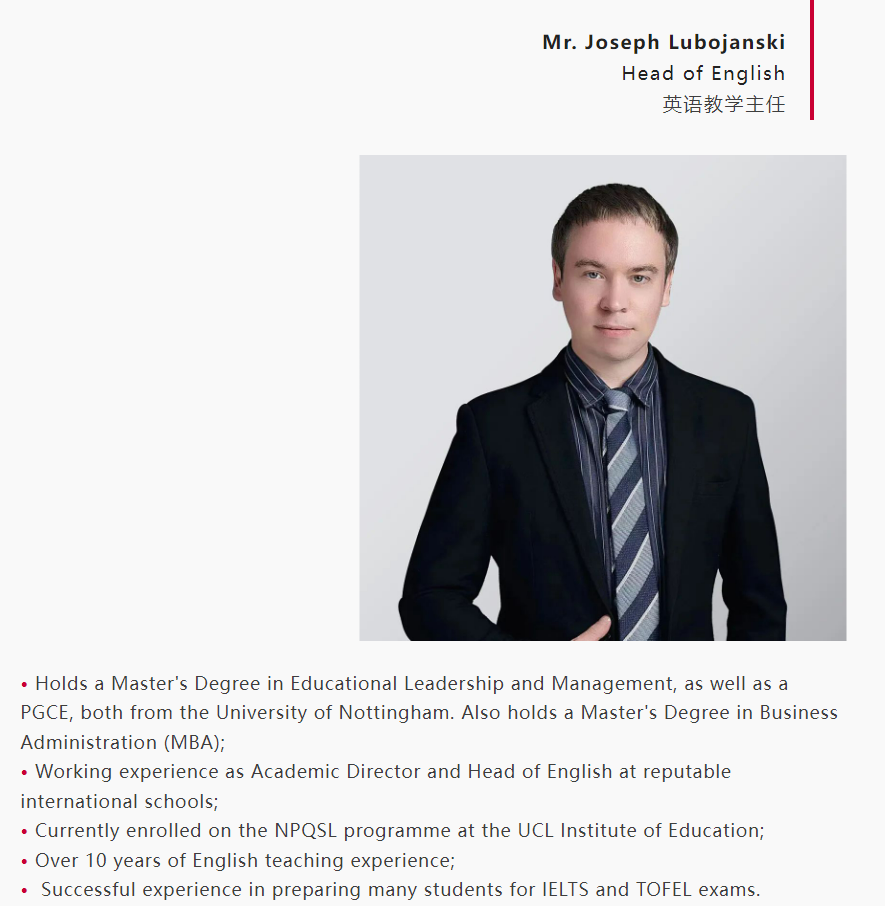
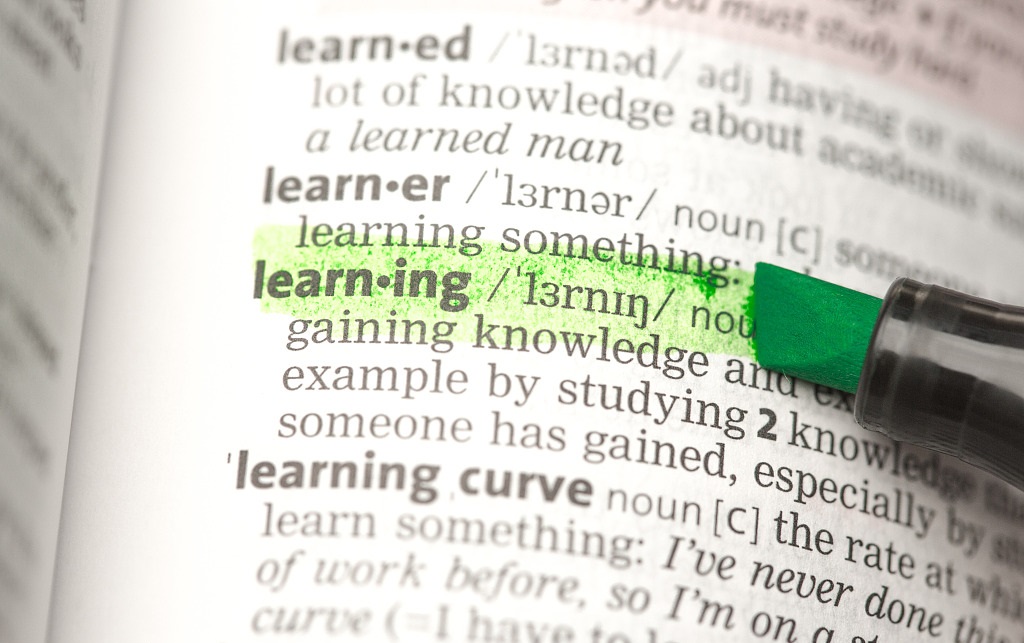
Mr. Lubojanski teaches IGCSE ESL to students in Year 10 and 11. He also teaches ESL classes to Year 9 students. Today we will take a peek into his classroom to find out what the students have been doing recently and see some of the work that they have produced.
Students in ESL classes have been working on poster projects. Some have been theming theirs around topics that they have covered in classes such as family and friends. Others have been completing their first pieces of research using questionnaires to ask their fellow students and teachers questions which they then used to write about their research findings and methodology.
Capstone projects like these are a great way for students to review what they have learned and to remind themselves of the key points. It is also a useful way for students to learn important skills such as teamwork, for those students who worked in teams for their projects. It is also a useful way for students to learn presentation skills, since all the students presented their work to the class when they were finished and answered questions from the “audience” about what they did and how they did it.
The research projects were a great first foray into the world of research. This skill becomes increasingly important when students enter university, as well as for A-levels. When students’ progress to graduate and post-graduate level, they will need to be able to carry out more and more research of their own to find new information about their subjects and to expand the body of knowledge in their subjects.
Projects like this are a great next step for students who have finished learning a topic to apply what they know but also to move to a stage of creativity and creation, which is a higher order skill that falls at the top of the pyramid of student output since it means moving beyond just what they have learned, into new ground.
Lucton students do more than just accumulate knowledge, they develop the skills necessary to become pioneers in their subjects and to work well with others.
Students carried out their first piece of social science research among their peers. They then quantified the results and presented them in graphs with explanations to show their findings.
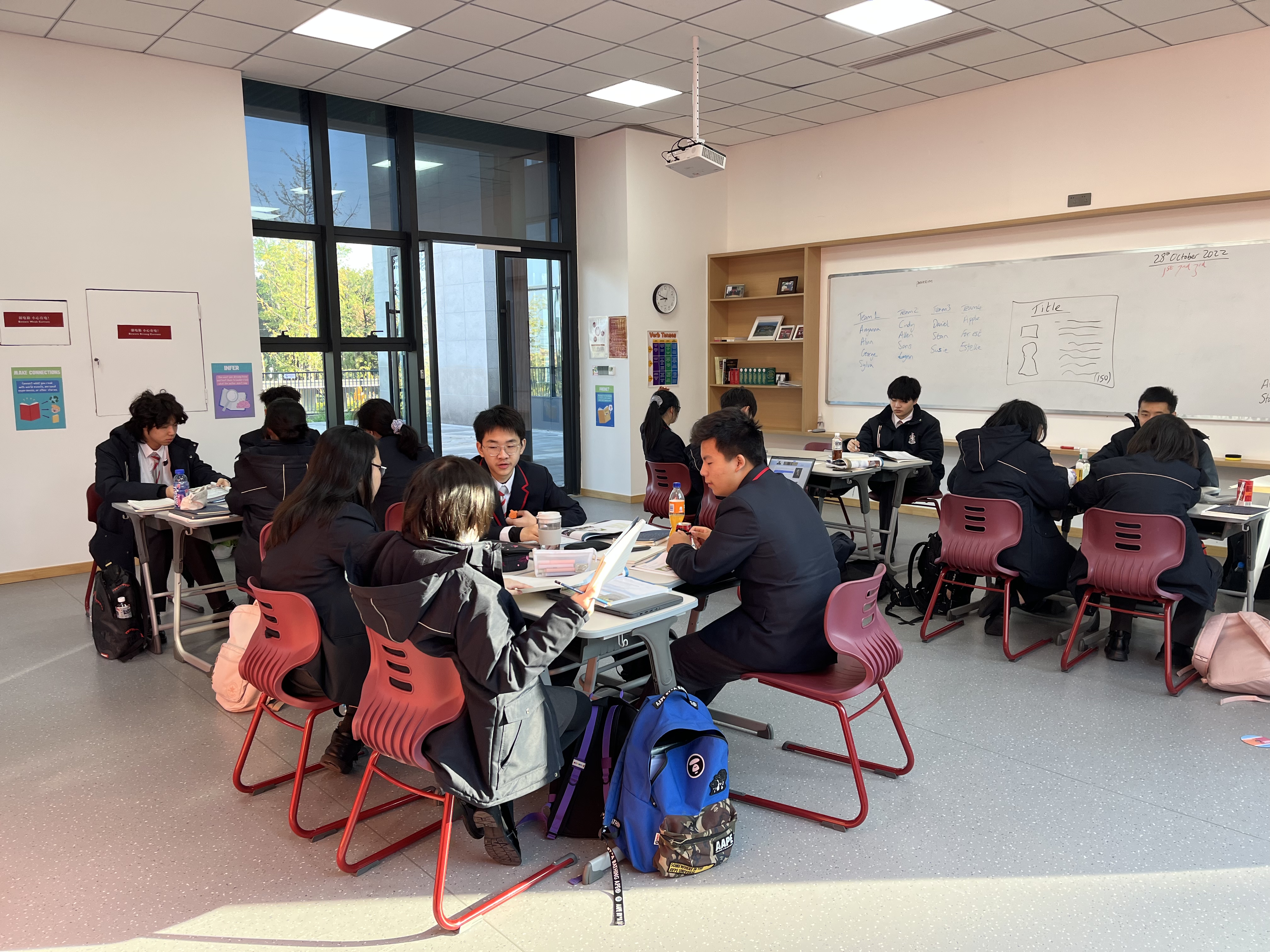
Some classes were split into teams to work on their projects. They split the tasks/responsibilities among the team mates with students assigned roles suited to their skills e.g. design, English writing, searching background information, presenting etc.

Other classes worked on their own individual projects. They worked very hard to complete their projects, based on everything that they had learned during that topic.
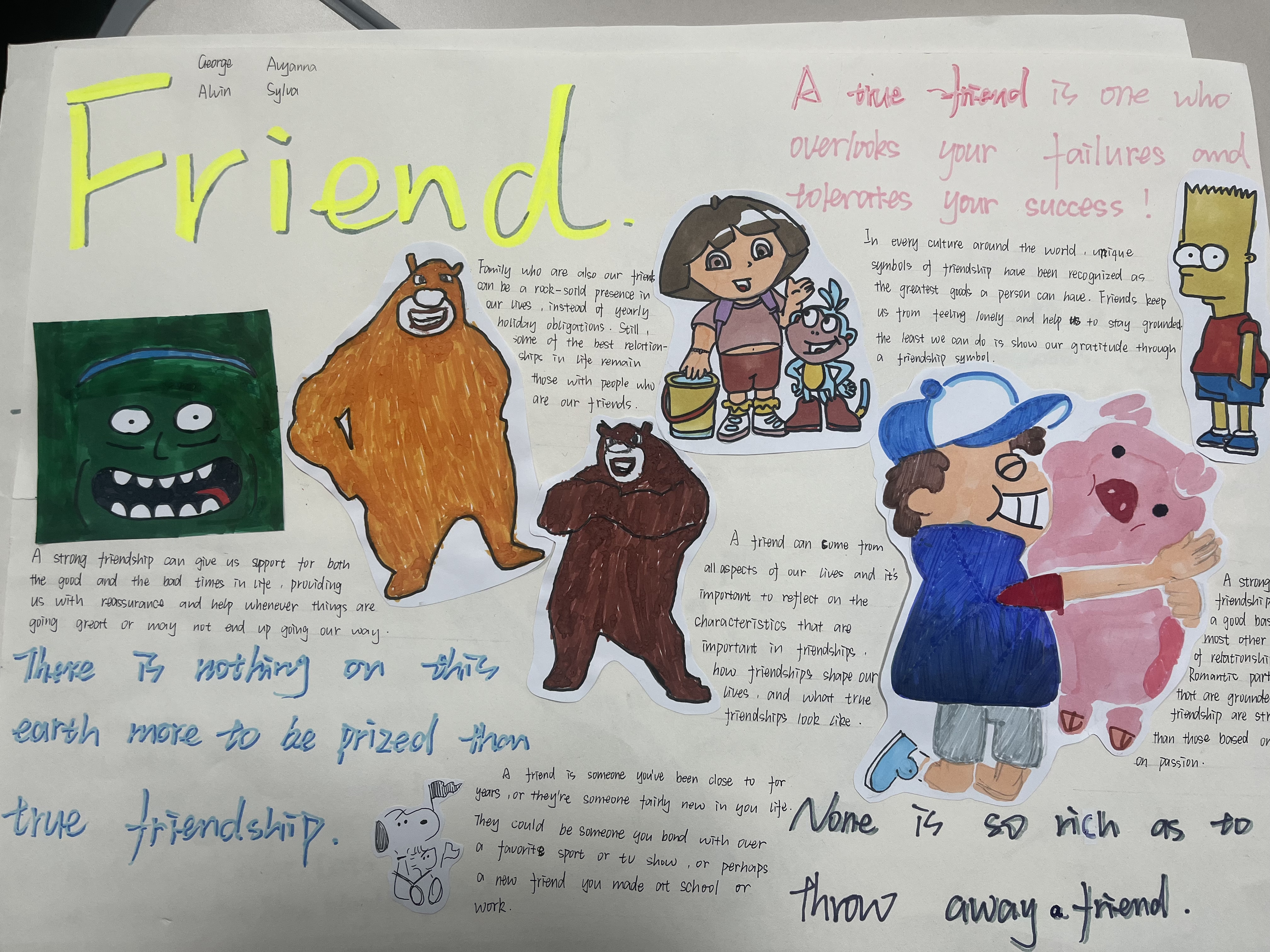
Some students have a strong artistic ability which they utilised to decorate their posters.
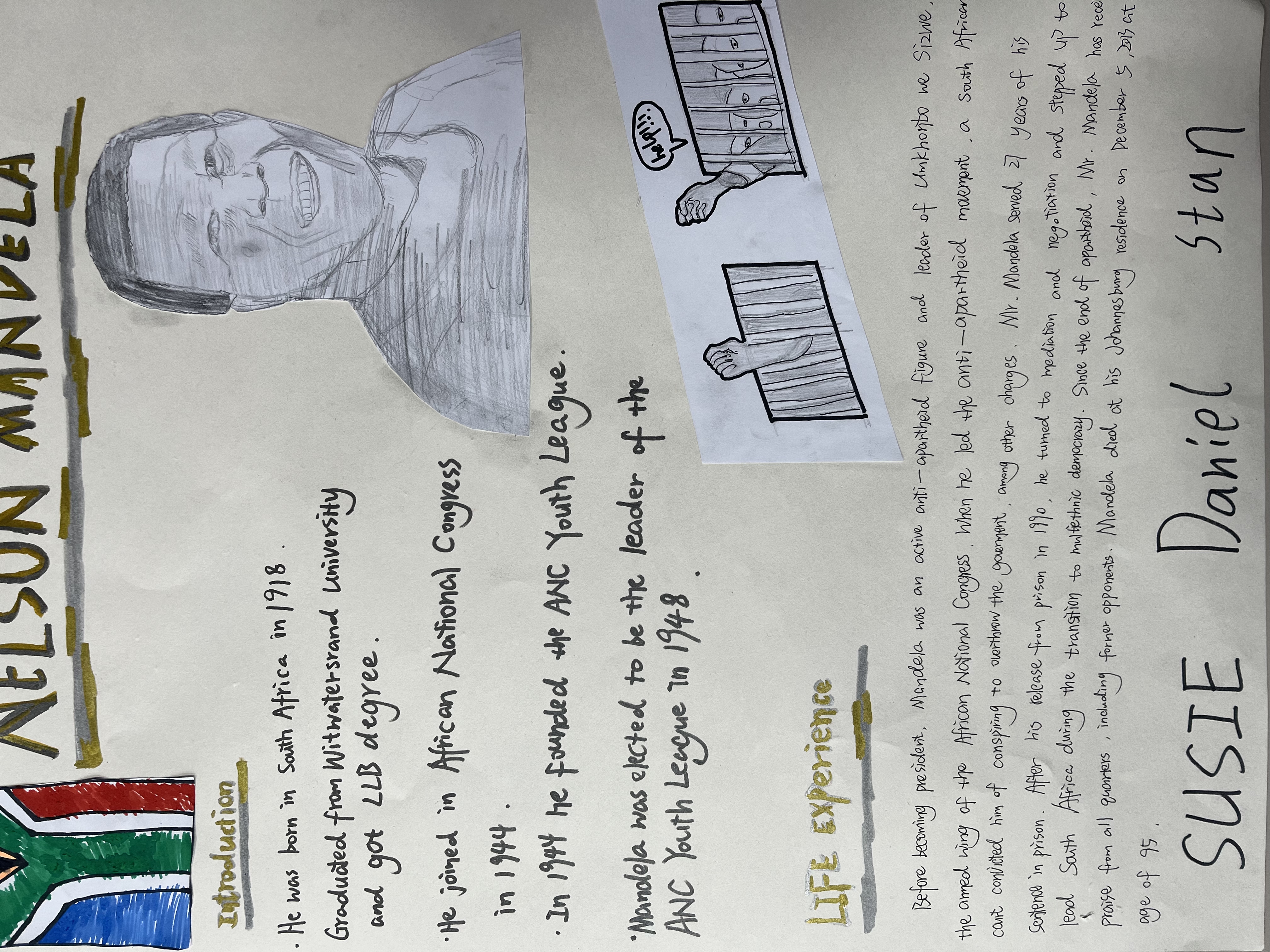
Students did a lot of reading to understand their topics and to find the relevant and appropriate information to include in their projects.
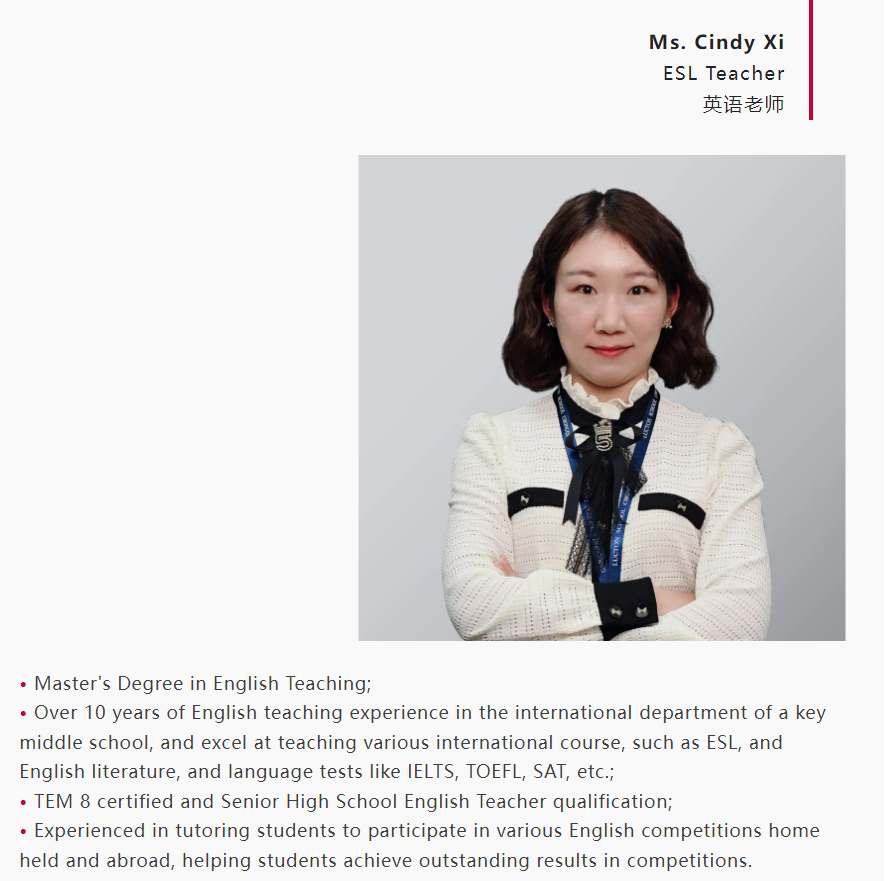
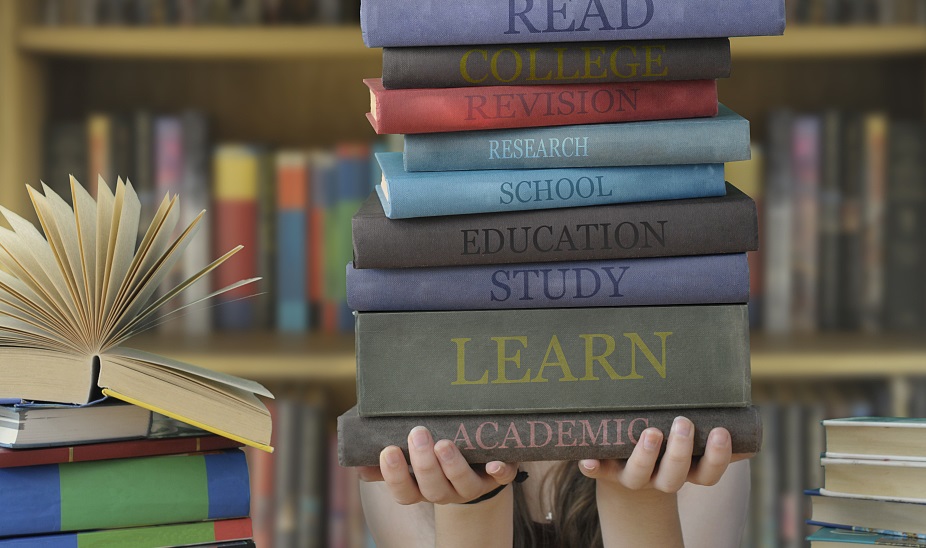
Ms. Xi mainly focuses on pathway English for Year 9 students. She also provides English Support (ESU) for other subjects, primarily concentrating on learning of subject terms, aiming to help students adjust well and quick to different fields of academic learning. In addition, Ms. Xi offers pre-IELTS lessons to equip students with basic skills for listening, speaking and reading.
Since my class is mainly for English beginners, we learn basic words and grammars, which gives my lessons a great advantage, that is learning for using and using for learning. For example, we learned “there be” structure and words for furniture. Students can immediately put the grammar and words into practice when they describe their rooms. Although the practice drills grammar structure and vocabulary, students felt excited since they can produce meaningful and realistic sentences based on their own life.
Students also did role play when learning words for different careers. They make different faces when learning words to describe feelings. They move to different positions when learning prepositions about places. When learning happens in this way, it is beneficial for students to develop English thinking as they directly associate goods or feelings with English words. Heavy dependence on mother tongue, which is Chinese, seems unnecessary and can be avoided in this situation. Relating learning to real life is very important and effective because students can really see, touch, and experience in life what they have learned on books. Knowledge is no longer something abstract, it has concrete meanings.
Another excitement in my class is moving. Sitting there statically is boring. If students can move from one place, or they can move cards, they will really devote themselves to practice. Activities like racing for words, finding the best partner can greatly improve learning concentration and efficiency. Those activities look like games, but learning takes place in the process of searching for the right word because students need to distinguish the correct word from a group of words.
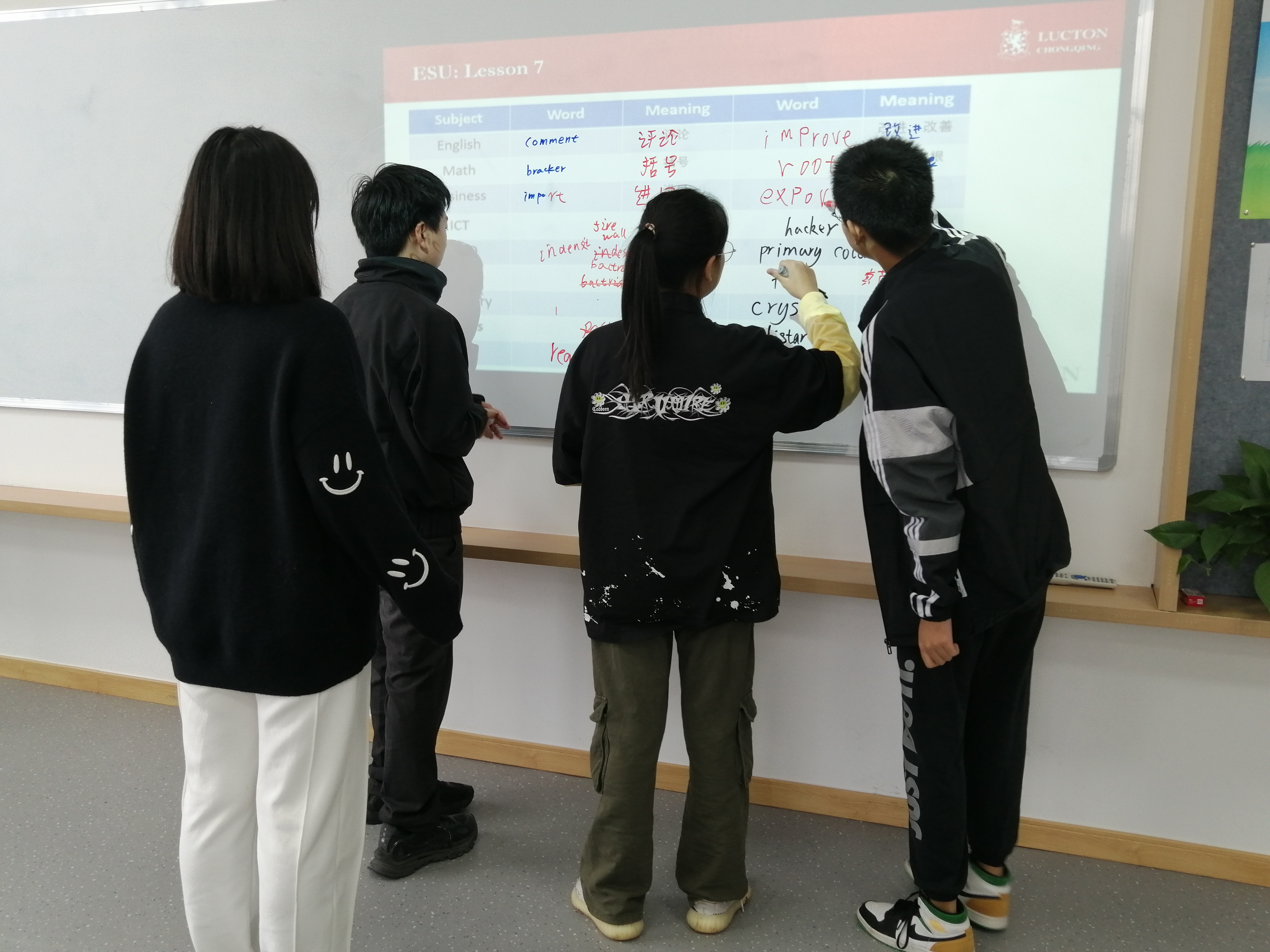
After introducing and learning some new vocabulary in ESU class, students are divided into two teams. They are using different coloured pens to mark their word territory.
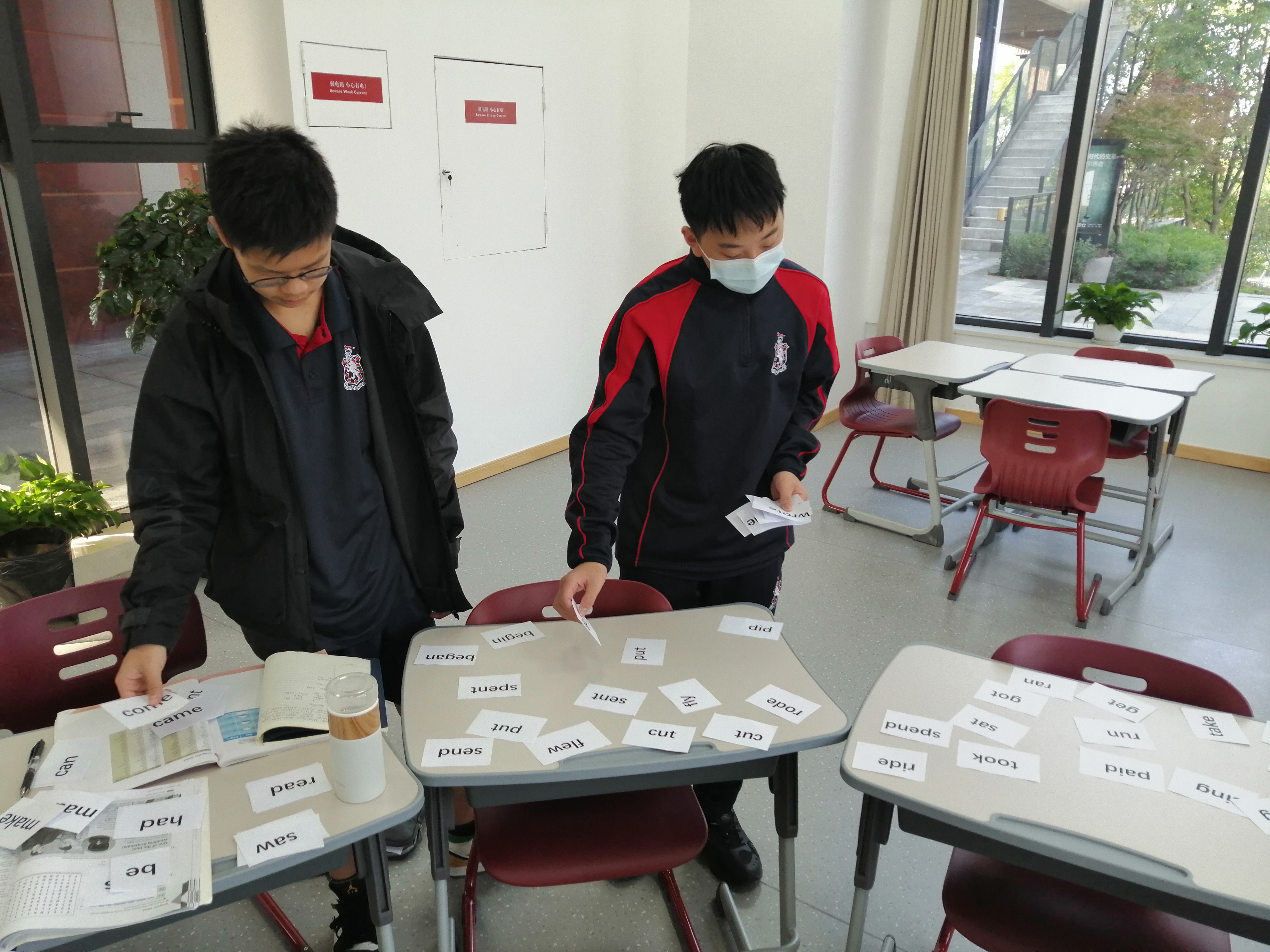
Students finished learning irregular verb changes in Past Simple tense. They are finding the right past partner for a verb.
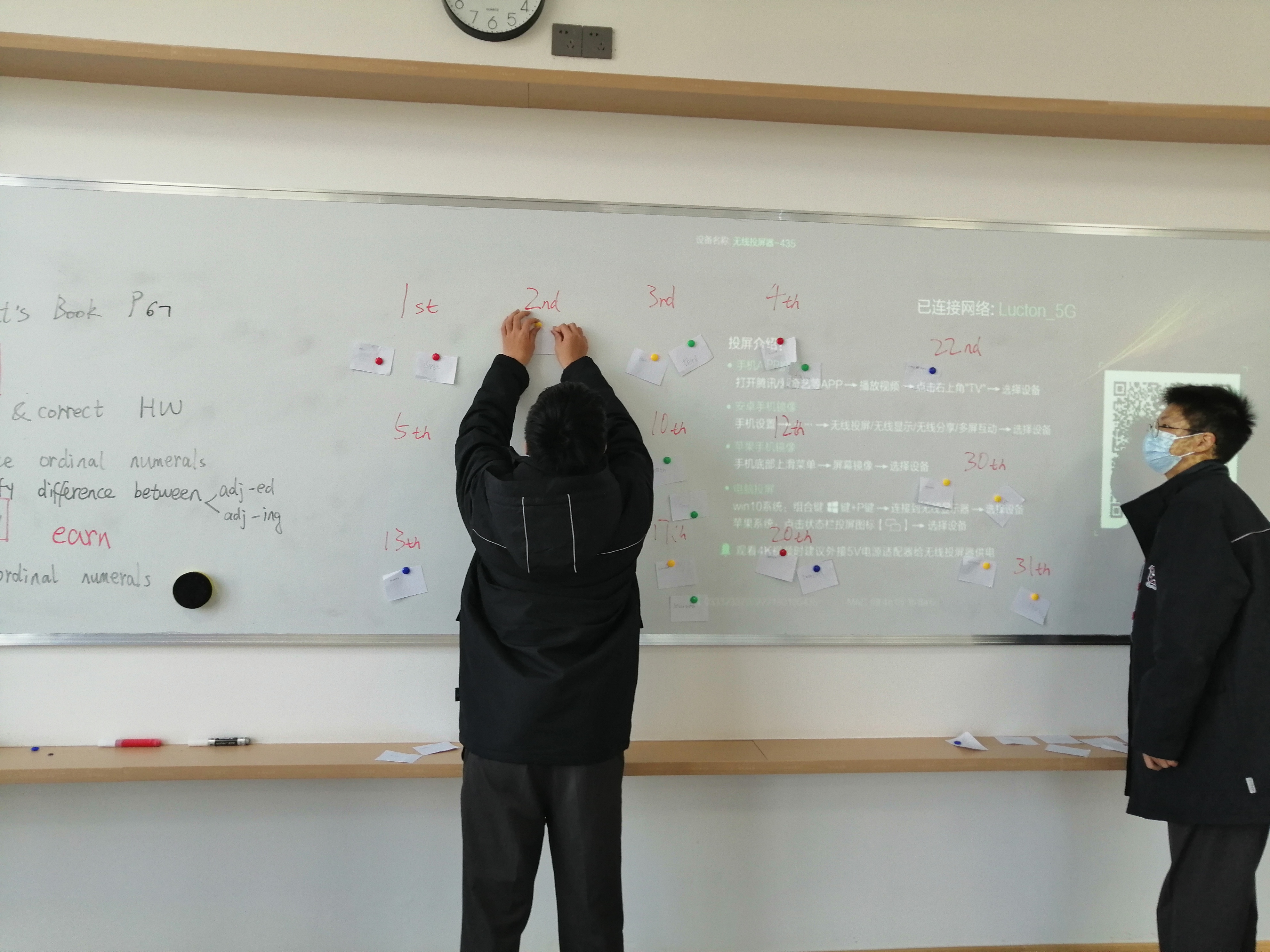
After making word cards for ordinal numerals, students are sticking them under the number on the white board according to what they heard.
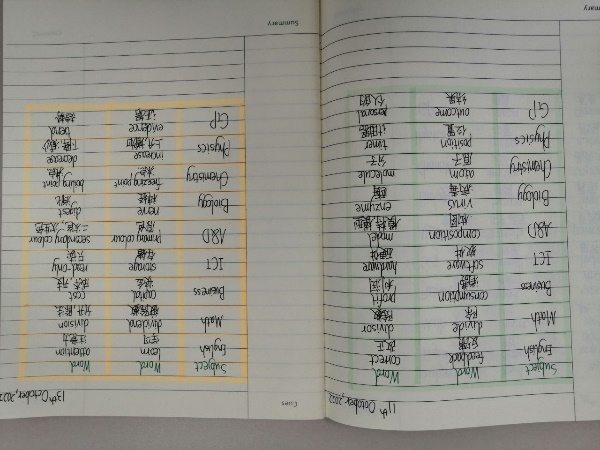
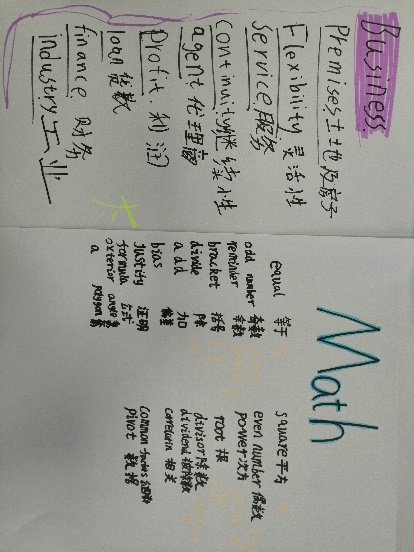
On the notebook are beautiful notes a student took in lesson. And on the plain paper are products of team work. Team members worked together to classify and write from memory words in different subject fields.

